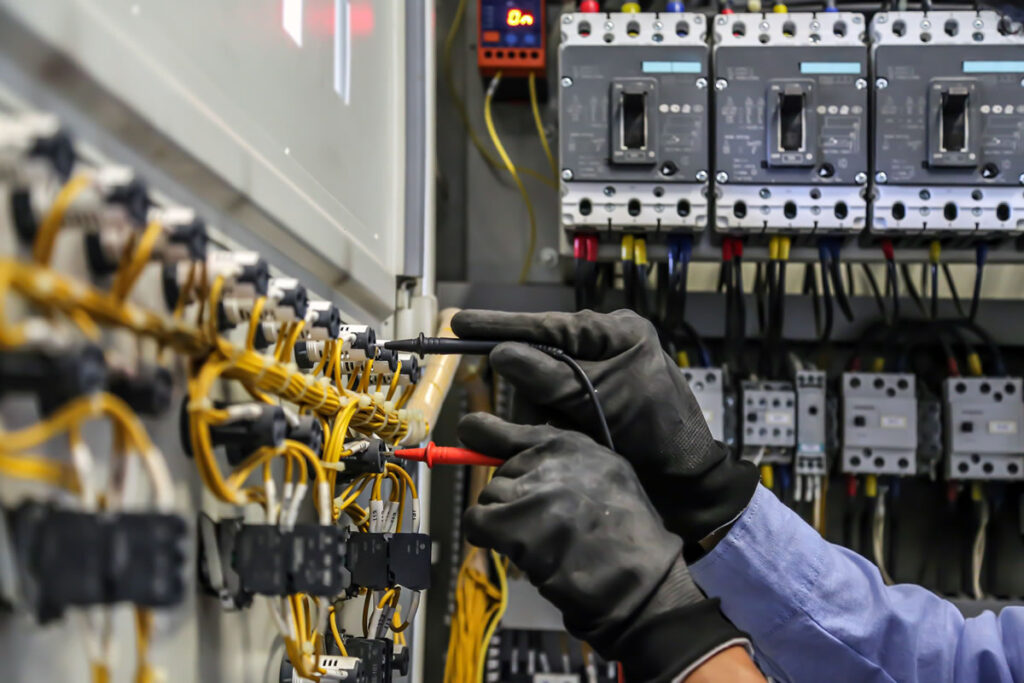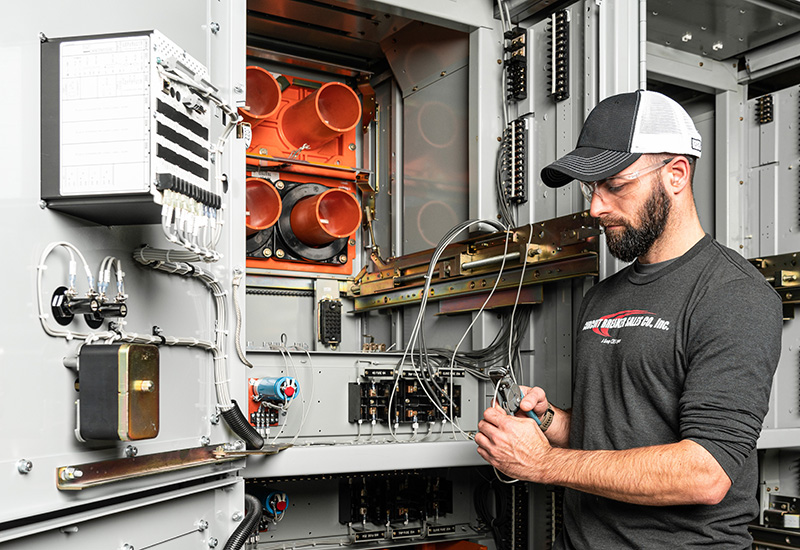
Electrical research and design made great progress in the early 1800s, and by the late 1870s access to power for industry and consumers became readily available. Since the days of the Industrial Revolution, our reliance on electricity has increased exponentially. And the regulations and technology have advanced as well. Ensuring the reliability, safety, and efficiency of electrical systems requires diligent testing and maintenance practices. Despite advancements in technology and industry standards, the electrical industry continues to face numerous challenges in testing and maintenance. From industrial advancements to workforce shortages and regulatory complexities, the electrical service sector faces a host of obstacles that require innovative solutions and collaborative efforts to overcome.
How Old Is Your Equipment?
One of the most pressing challenges for electrical testing and maintenance is the aging infrastructure. Customers — whether commercial or residential — expect reliable, affordable, and now, sustainable electricity. Much of the electrical grid and associated equipment in the United States is unable to deliver. It’s decades old, with some nearing the end of its operational life, whether due to deterioration, lack of maintenance, a dearth of replacement parts, or incompatibility with new technologies. Aging infrastructure increases the risk of equipment failures, outages, and safety hazards, posing significant challenges for maintenance efforts. Moreover, as infrastructure ages, it can become more difficult and costly to maintain, requiring more frequent inspections, repairs, and replacements. Extreme weather events are becoming more frequent, adding to the pressures of an aging infrastructure.
Addressing infrastructure shortcomings requires proactive maintenance strategies, including regular inspections, condition monitoring, and asset management programs. The 2023 NFPA 70B Standard for Electrical Equipment Maintenance is an excellent resource for guidance on electrical equipment condition assessment and recommended practices. Strategic investments in life-extension projects, upgrades, and modernization initiatives are essential for ensuring the reliability and stability of electrical service in our country. These activities, however, require skilled crew members and financial resources to execute.

Addressing the Workforce Shortage
A growing workforce shortage and skills gap pose some of the most significant challenges for these electrical testing and maintenance activities. As experienced professionals retire and fewer people pursue careers in electrical trades, the industry is grappling with a dwindling talent pool of skilled technicians, engineers, and maintenance personnel. At the same time, the electrical industry has one of the highest annual growth rates at about 6%. The evolving nature of the industry, coupled with rapid technological advancements, requires a workforce with diverse skills and a broad knowledge base. Addressing the workforce shortage and skills gap requires concerted efforts from industry stakeholders, organizations such as NETA, educational institutions, and government agencies to promote vocational training, apprenticeship programs, and lifelong learning opportunities. Additionally, initiatives aimed at attracting and retaining diverse talent, including underrepresented groups such as women and minorities, are essential for building a resilient and inclusive workforce that can effectively address the testing and maintenance challenges in the industry.
New Technology Means New Complexities in Testing and Maintenance
The rapid pace of technological advancements presents both opportunities and challenges for the electrical service industry. Modern electrical systems incorporate a wide range of technologies, including smart grids, renewable energy sources, energy storage systems, and advanced control systems. While these technologies offer potential benefits such as improved efficiency, reliability, and sustainability, they also introduce new complexities in testing and maintenance and expanded opportunities for service. For example, smart grids and digital control systems require specialized testing and diagnostic tools to identify and troubleshoot issues effectively. Moreover, the integration of renewable energy sources and energy storage systems introduces new challenges in grid stability, voltage regulation, and power-quality management. Addressing the challenge of technological complexity requires continuous training and skill development for maintenance personnel, as well as investments in advanced testing equipment and diagnostic tools. Continued education in emerging technologies and updated best practices is also essential to be able to service this equipment.
The electrical transmission and distribution industry now incorporates more sensors, meters, and monitoring devices than ever before. These devices generate vast amounts of data related to equipment performance, energy consumption, and operational parameters. In addition to performing traditional testing tasks, these advanced devices require advanced inspection and testing practices as well. To identify potential issues, technicians must be trained to effectively manage and analyze the large amount of collected information and test results. Testing data aids infrastructure owners in optimizing maintenance schedules and improving overall system reliability, efficiency, and safety. Data collection and management is an even greater part of routine maintenance and testing activities than ever before. These additional skills are now required in our workforce, not just desired. Gone are the days when the crew leader or project manager was the only employee responsible for data.
As our electrical systems have become increasingly digitized and interconnected, cybersecurity has emerged as another critical concern in the electric power industry. Electrical infrastructure is vulnerable to cyberterrorism ranging from data breaches to malicious attacks that can disrupt operations and compromise the integrity of the grid. Having a knowledgeable workforce that can manage data safely and securely while adhering to cybersecurity protocols is essential.
Safety Is Paramount
We cannot discuss challenges in the industry without addressing safety. Safety is paramount, and ensuring compliance with proper procedures and protocols is a critical aspect of testing and maintenance activities. Electrical systems pose inherent risks to personnel and property, and adherence to stringent safety rules is essential for minimizing these risks. Requirements for regular safety training have steadily decreased the number of incidents annually. Regular updates to the NFPA 70E Standard for Electrical Safety in the Workplace have provided a good framework for electrical safety over the years, but employee understanding and adherence is essential. Navigating the complex regulatory landscape and ensuring compliance with evolving safety standards can be challenging for maintenance and testing personnel and organizations. Consistent and continued safety training is crucial but can be complicated. Regulatory requirements vary across jurisdictions, adding another layer of intricacy to testing and maintenance activities. Addressing the challenge of safety and regulatory compliance requires robust safety training programs, adherence to industry best practices, and investments in safety equipment and protective gear.
The electrical industry faces numerous challenges in testing and maintenance, ranging from aging infrastructure and technological complexity and advancements to workforce shortages, safety, and training. Addressing these challenges requires an all-inclusive approach that encompasses proactive investments in technology and workforce development. With continued focus on these elements, the electrical industry can enhance the reliability, safety, and efficiency of electrical systems, ensuring the continued provision of essential services to society.
Learn more:
- Leverage NFPA 70B to Drive Maintenance, Testing, and Repair Business
- IEC 61850: Effective Communication for Modern Power Systems
- Arc Flash Hazard Awareness for Contractors, Owners, and Host Employers
- To Ensure Arc Flash Safety, Know the Condition of Your Circuit Breakers
- Is Your Arc Flash Study Valid? How IEEE 1584 Standard Updates Impact Facilities
